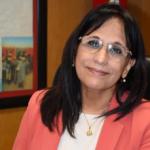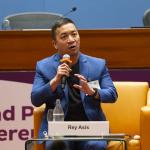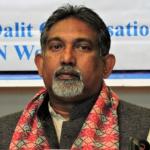The active participation of Major Groups and other Stakeholders (MGoS) at all levels is crucial to the successful implementation, follow-up and review of the 2030 Agenda. They bring forth the voices and aspirations of many diverse stakeholders, often including those who are most marginalized and left behind. They are also key drivers of the implementation and achievement of the SDGs. They participate in the regional forums on sustainable development, contribute to national mechanisms that engage civil society actors and include them in the preparation of voluntary national reviews, and are at the center of trans formative change at the local level, where progress is achieved every day through their actions.
MGoS have been regarded as respected partners in sustainable development at the international level before the inception of the 2030 Agenda, and are a crucial part of other related United Nations processes, such as the Technology Facilitation Mechanism and the ECOSOC Forum on Financing for Development. Their contributions to intergovernmental discussions and debate leading to global policymaking on critical issues affecting the most vulnerable and marginalized groups are impactful and valuable.
This session offers the MGoS an opportunity to discuss pathways and concrete proposals for moving forward in the pursuit of achieving the 2030 Agenda. In the face of a range of challenges to participation of stakeholders, this session will consider ways to strengthen the engagement of MGoS to overcome the impact of crises and take forward SDG implementation. The session will hear from diverse stakeholders and non-state actors on the challenges and opportunities for delivery of the 2030 Agenda, as well as setting out recommendations for a more sustainable and human rights-centric approach to development.
Proposed guiding questions:
- In a world facing multiple crises and challenges, stakeholder participation in multilateral processes is more crucial than ever. What are the ways to strengthen the role of diverse stakeholders at the United Nations?
- How are stakeholders playing a critical role in the implementation of the 2030 Agenda? What are some good examples and case studies of stakeholder implementation?
- Building on the Secretary-General’s mid-point review of the 2030 Agenda, what actions should be taken to ensure accountability and guarantee meaningful engagement of rights holders in order to deliver the 2030 Agenda over the coming six years?
Chair:
- H.E. Ms. Paula Narváez, President of the Economic and Social Council
Interactive discussion
Moderator:
- Mr. Oliver Henman, Co-chair of the Coordination Mechanism for the Major Groups and other Stakeholders
Panellists:
- H.E. Ms. Maritza Chan-Valverde, Permanent Representative of Costa Rica to the United Nations
- Ms. Frances Zainoeddin, UN Focal Point, Stakeholder Group on Ageing
- Ms. Jordania Urena, Deputy General Secretary, International Trade Union Confederation
- Mr. Paul Divakar, Founder, The Inclusivity Project
- Mr. Rey Asis, Program Coordinator, Asia Pacific Mission for Migrants
- Ms. Caroline Rucah, Executive Director, Western Kenya LBQT Feminist Forum (LGBTI Stakeholder Group)
Lead Discussant:
- Ms. Amina Bouayach, Secretary of the Global Alliance of National Human Rights Institutions (GANHRI)
Interventions by ministers and other participants (up to 2-3 minutes each)
 Welcome to the United Nations
Welcome to the United Nations









